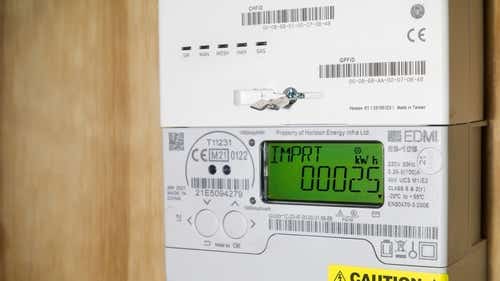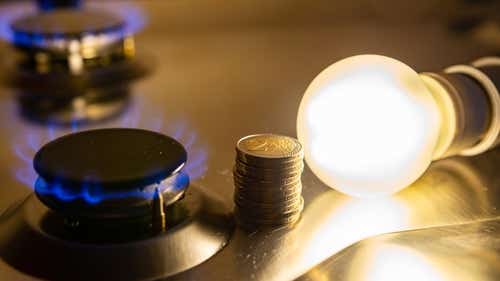- Uswitch.com>
- Gas and Electricity>
- Guides>
- What is Economy 10? - Uswitch
Understanding Economy 10 tariffs - are they right for you?
Economy 10 tariffs are a way for you take advantage of low rates for your electricity, but there are some important rules you need to follow.
Economy 10 is similar to Economy 7 and white meter tariffs, which you may be familiar with.
Please note that Uswitch does not currently allow households to switch between Economy 10 plans. Not all energy suppliers offer Economy 10 plans, and there aren't many options for customers to switch energy deals within the current energy market at the moment anyway.
How does Economy 10 work?
Economy 10 gives you the same energy as any other tariff, but during ten off-peak hours of the day, your energy will cost less. The Economy 10 discounted rates are typically broken down into seven hours at night, and three hours during the day. While Economy 10 offers unit rates of up to half the price of peak rates, the standing charges are often higher.
How can I take advantage of Economy 10?
To make the most of Economy 10 tariffs your property should be based on an electric rather than gas heating system. You should use the majority of your energy during the off-peak hours. This means running your heating and appliances during the night and late evening. Consequently, they are only typically suitable to properties with storage heaters, or underfloor heating, where heat can be retained and released as the day progresses. Electric storage heaters allow you to keep water, which has been heated at night, hot during the day. However, it is worth bearing in mind that while this water will be hot first thing in the morning, it may have cooled by the time you come home from work.
You should be aware that Economy 10 tariffs typically only offer five hours of heat at night (complimented with three in the afternoon and two in the evening). This may not be suitable for older storage heaters that require seven hours of continuous heating to store enough heat. You will also need to make sure your major appliances, like your washing machine, dishwasher and tumble dryer, have timer settings so they can be operated at night.
On that note, it's also worth thinking about where your appliances are located. It’s no good having a washing machine with a timer if it is located next to your bedroom and will keep you up all night.
Can I use my normal meter with an Economy 10 tariff?
No. A standard meter will only give you one meter reading, whereas for Economy 10 you will need two to three different meter readings, depending on if you have a storage heater. As such, switching to an Economy 10 tariff will more often than not mean having a new meter installed. Your energy supplier will be able to do this for you, but may charge a fee to do so.
Similarly, if you are switching away from Economy 10 to a standard tariff, you may need to pay a fee to have a standard meter installed. Whilst this shouldn’t discourage you from switching to or from Economy 10, it’s worth keeping the potential cost in mind.
What are the disadvantages of using Economy 10?
The main problem with Economy 10 is when it comes to switching. If you take into account the cost of having a standard meter installed, switching to a non-Economy 10 tariff in the future could be expensive.
You also have to have a more disciplined lifestyle with Economy 10 tariffs, and use the majority of your energy during the designated times. If you end up using a significant amount of your energy outside of these times, the higher standing charges could mean you end up paying more than you should.
While timing your energy use can be relatively straightforward, the colder winter months in particular can disrupt your schedule as you may want the heating to come on sooner. Finally, the off-peak times that fall under your Economy 10 tariff vary from supplier to supplier and region to region. This means that if you chose to switch from one Economy 10 plan to another, you may need your meter to be reprogrammed by an engineer.
How Is Economy 10 different from Economy 7?
The key difference is simply the number of off-peak hours. While Economy 7 offers you seven hours of off-peak energy at night only, Economy 10 adds three daytime hours, usually in the afternoon.
How else can I cut my gas and heating bill?
While it’s tempting to use an Economy 10 plan to take advantage of off-peak energy, the simpler way to cut your energy bills is simply to reduce your consumption. For instance, try turning your thermostat down a little, and making sure you have energy-saving light bulbs installed throughout your property. You should also be aware of buying new energy-intensive appliances like flat-screen TVs. And when it comes to doing the washing, 90% of your washing machine’s energy is spent by heating the water, so try and use lower temperatures.
When it comes to retaining heating, besides closing doors and windows, make sure your draught proofing and insulation is up to scratch.
Loft insulation is the most cost-effective way to retain heat in your property. Read our loft insulation guide for more information.
Similarly, draught-excluders around the edges of doors, windows and in fireplaces can make a huge difference, and are cheap to buy and easy to install.
Read more:

How to read your gas and electricity meters - Uswitch
Find out how to take meter readings from any type of gas or electricity meter in this Uswitch guide to reading energy meters.
Learn more
What is Economy 7? - Uswitch
Find out everything you need to know about Economy 7 meters and tariffs, including how to tell whether you have an Economy 7 meter, how Economy 7 tariffs work and how to get the best energy deal for you.
Learn more
What are the different types of energy tariff? - Uswitch
Do you wonder why there are so many different energy tariffs for domestic gas and electricity? In our guide to energy tariffs, we'll explain how and why energy suppliers offer different energy and pricing. You can then compare the different tariffs and decide what is the best type for you.
Learn more
